Fact: Ferries are my least favorite method of transportation. In my experience, they are usually crowded, rarely comfortable, and have a tendency to make me seasick.
Alas, the only way to reach Likoma Island from Nkhata Bay is by ferry.1 We had heard taking the ferry, named the Ilala, was supposed to be a quintessential Malawian experience in and of itself, and so we planned to take it from Nkhata Bay to Likoma Island.
The ferry only runs between Nkhata Bay and Likoma Island on Tuesdays and Fridays (see infra for additional practical information), and we boarded the Ilala early on a Friday morning for a 6:00 a.m. departure.
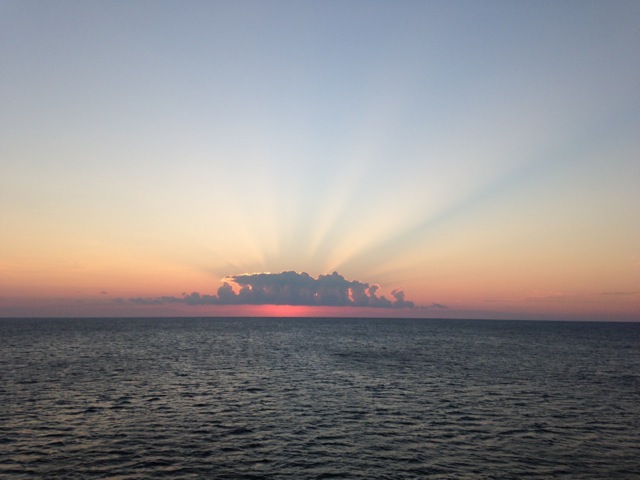
We had read really grim things about the economy and second-class tickets, and so we purchased first-class tickets. Learn from our mistake: Do not do this! The first class tickets entitled us to sit on the upper deck of the boat, which was certainly less crowded but nowhere worth the price differential (12,500 Malawian kwacha for first class versus 2,900 Malawian kwacha for economy class). 2 There were a few benches on the upper deck, but there was almost no shade and the ride was hot and sunny. Moreover, the bar was located on the upper deck – consequently, the upper deck was occupied by us and a bunch of drunk people – made all the more obnoxious by the fact that their imbibing began shortly after 9:00 a.m. The only benefits of sitting on top are getting a seat and having fresh air in case you get seasick.
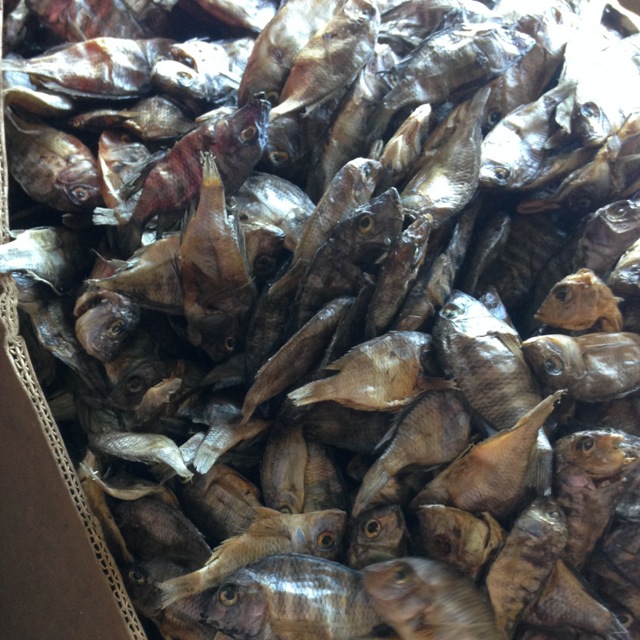
After a journey of over six hours (including a stop at Chizumulu, a smaller island, along the way), the Ilala reached Likoma Island. Unlike Nkhata Bay, Likoma Island has no dock, meaning the ferry anchored a good distance off shore and small tender boats were used to transport passengers and their cargo to the island. The process can be lengthy (there is a lot of cargo that gets transported on that ferry as it is the islands’ main link with the mainland), and it is a cutthroat process to get into one of the early tenders. I literally had someone handing bananas down over my head as I attempted to navigate the slippery ladder down from the deck into the small boat. Once I was standing in the boat, finding a seat and a space for my bags presented its own challenge. Luckily, the Finnish couple we had met in Nkhata Bay was already in the small boat and gave me a hand so that I didn’t fall into the lake.
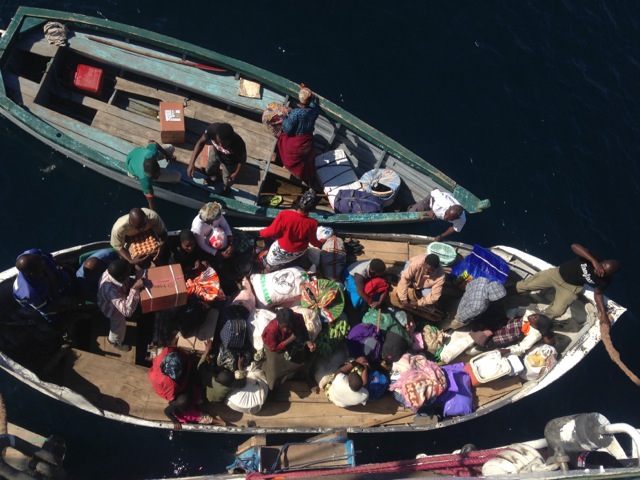
After it was full, the small boat charged toward the shore, pausing several feet out. We then had to disembark into water about knee-height and carry our bags above our heads the remainder of the way.
We had made arrangements to stay at Mango Drift, and the manager met us on the shore. He loaded us and the Finns into his truck and drove us to the hotel, a charming little place with its own stretch of private beach on the lake. While lazing around, enjoying our first few hours on the beach, we learned that our arrival had coincided with the unfortunate failure of the nearby town’s power transformer, and the rumor was that the town – and consequently Mango Drift – might not have power for more than a month. We initially felt a little caged (we couldn’t leave until the next ferry on Tuesday; what would we do without power this whole time?), but we soon relaxed.
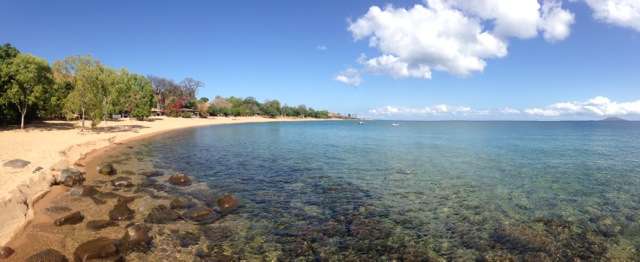
The electricity was restored on Tuesday (and a diesel generator had even been scared up in the interim for power in the evenings), but, by then, we had already decided to stay on the island until Friday. We spent our days lounging around, alternating between beach chairs and the hammocks, reading books and (in my case) writing or (in Marc’s case) playing poker with the other guests.3 We frolicked in the lake during the day (even taking out the free snorkels a couple of times to observe the lake’s large variety of cichlids), and a couple of evenings took one of Mango Drift’s boats up the lakeside to another hotel to watch the World Cup.
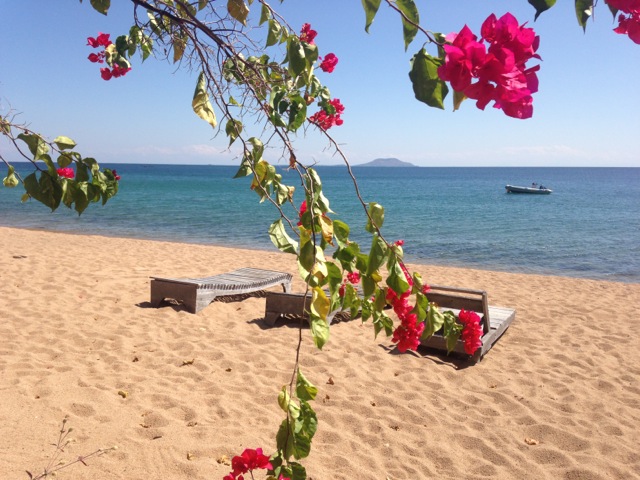
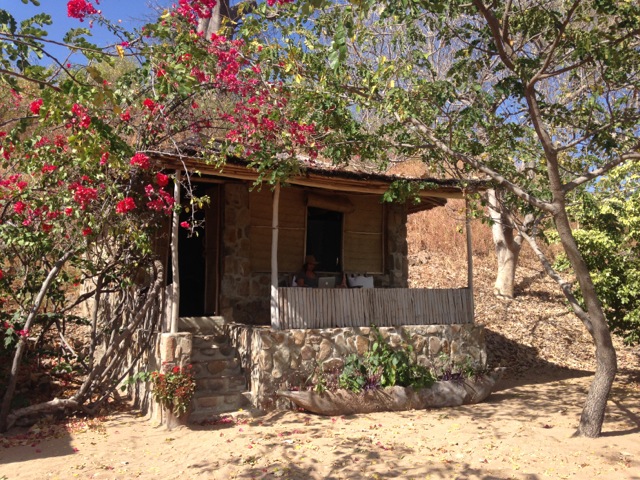
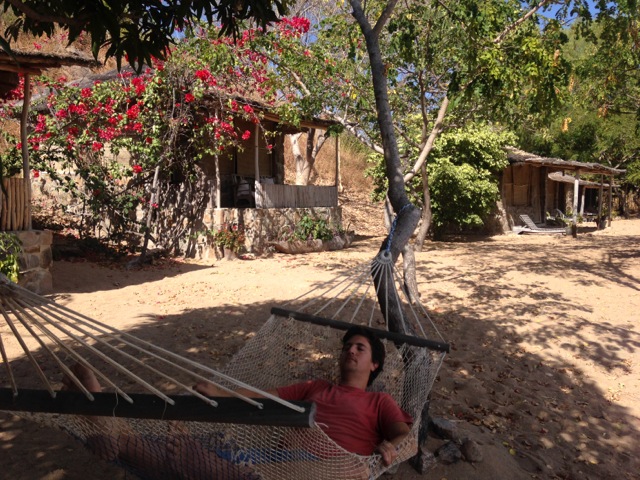
The food was simple but delicious: we ate the same scrambled eggs on toast every morning (always accompanied by a strong dose of Malawi’s amazing Nali hot sauce, the same sandwiches every afternoon, and whatever the cook had prepared for the communal dinner on the beach every evening.
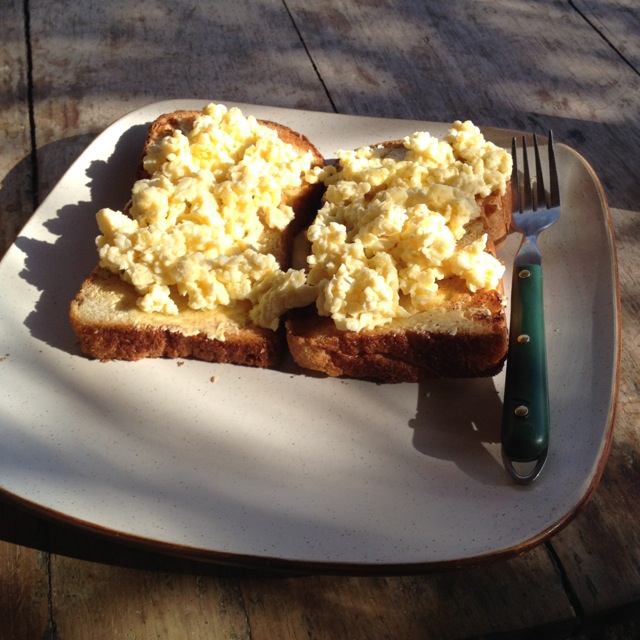
Finally, we realized we had to go back to the mainland. On a Friday, one week after we had arrived, we loaded into vehicles and headed down toward the ferry. We arrived around noon, and found the ferry again anchored offshore, being unloaded (and possibly loaded). The confusing unloading/loading process continued for another three hours before we finally were able to squeeze ourselves in a crowded boat and zip off to board the ferry. It was then another two hours before the ferry finally departed.
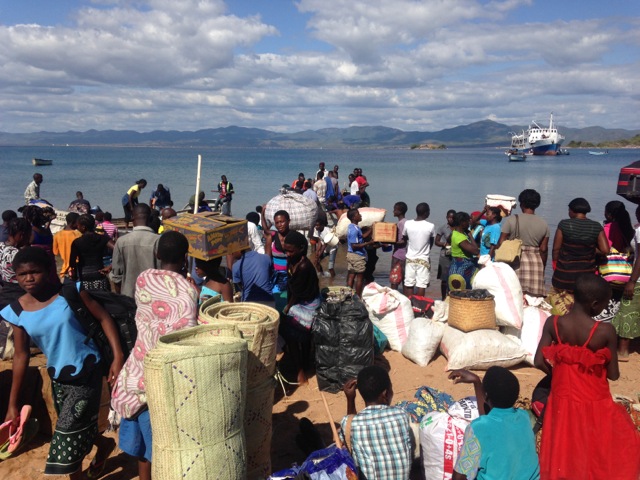
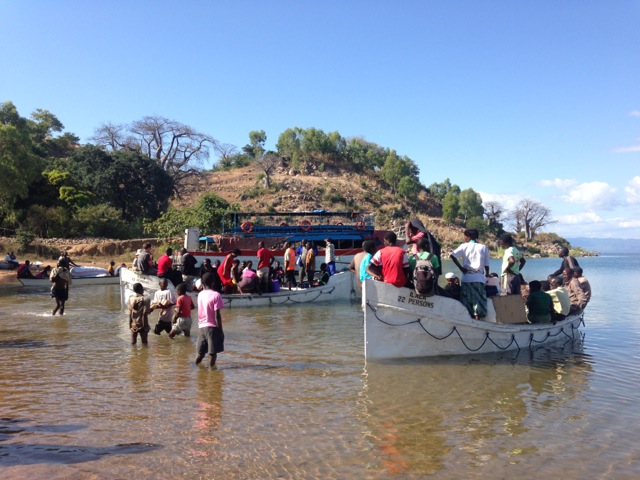
For the return trip to Nkhata Bay, we had purchased economy tickets. We staked out a small corner near the front of the boat with our traveling companions, surrounded by drying fish, and made our way back to the mainland, where James picked us up and shuttled us back to Mayoka Village.
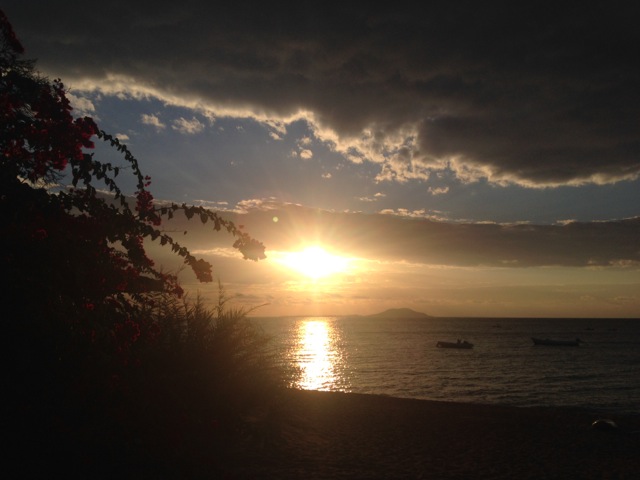
Where We Stayed:
☆ Mango Drift. Five goats. This place was everything that we could have wanted in an island retreat: beautiful, quiet, comfortable (particularly that bed!), inexpensive, and with a friendly staff. I really can’t say enough good things about Mango Drift.
Practical Information:
Finding up-to-date, accurate information about the Ilala proved difficult for us. In the interest of assisting other potential travelers out there, below are a few things that we learned. Please note that, while these details are current as of the date of our travels (June 2014), I would highly recommend checking with locals in Nkhata Bay as to the current situation.
☆ The Ilala no longer plies the southern section of Lake Malawi (apparently this portion of the route was determined to be too unprofitable to continue), and thus no longer services Monkey Bay.4
☆ The Ilala runs between Nkhata Bay and Likoma Island on Tuesdays and Fridays only.
☆ The Ilala departs Nkhata Bay for Likoma Island at 6:00 a.m., but it is recommended that you arrive at the ferry by 5:30 a.m. to ensure you are able to buy tickets and get onboard.
☆ The Ilala purports to depart Likoma Island for Nkhata Bay around 2:00 p.m., but it will depart whenever the boat is loaded and ready, rather than on a schedule.
☆ First-class tickets cost 12,500 Malawian kwatha.
☆ Economy class tickets cost 2,900 Malawian kwacha.
☆ I’m not sure how much the second class tickets cost, but that looks even more grim than the economy class: there are benches, but they are all enclosed in a dark, windowless room on one of the lower decks .
1 Likoma Island is accessible by airplane, but the option is neither practical from Nkhata Bay nor budget friendly.
2 At the prevailing exchange rate during our visit (1 USD ≈ 400 MWK), this equated to approximately $24 per ticket.
3 Marc wanted me to note that he hauled in several thousand Malawian kwacha in winnings over the course of several nights of play.
4 It was this nugget of information, gleaned in Lilongwe, that led us to choose to focus our time on Lake Malawi in Nkhata Bay and Likoma Island.


Everything about this (minus the ferry and the loss of power – ha) looks lovely! <3